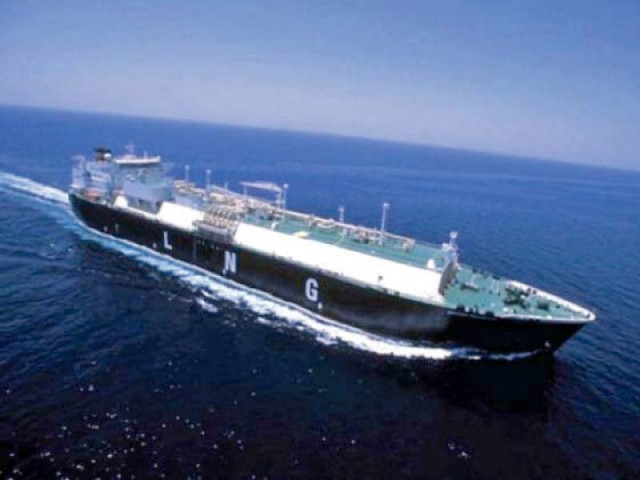Cabinet opposes renewal of IPP power purchase deals
Task force working on new policy that will keep in view future oil, gas prices

Qatar is the major LNG supplier to Pakistan. However, Australia and the United States are going to become potential suppliers in future, which may cause a decline in LNG prices. PHOTO: FILE
The proposal was submitted by Special Assistant to Prime Minister on Petroleum Division Nadeem Babar to the cabinet, chaired by Prime Minister Imran Khan.
Now, the task force on energy is working on a policy, which will be submitted to the cabinet for formal approval. “Power purchase agreements with the IPPs including Kapco and Hubco are going to expire in coming years and the government will not renew the agreements,” Babar told The Express Tribune.
Cabinet approves 25 TMAs in NMDs
This means that the government will not continue to follow the power purchase agreements on a ‘take and pay’ basis, which binds the government to pay capacity charges. However, these power plants will be able to sell electricity to the Central Power Purchasing Agency (CPPA) in the summer season when demand is higher compared to the winter.
The power plants were set up under the Power Policy of 1994 and were based on furnace oil. The only flaw is that the past government had not foreseen the future scenario of prices of different fuels.
At that time, the price of furnace oil stood at Rs2,843 per ton, which was cheaper than the domestically produced gas. However, the price of furnace oil has now jumped up to Rs87,000 per ton, which is many times expensive than the price of indigenous gas.
“However, in the new policy, the government will examine the future scenario of fuel and gas prices,” said Babar. Now, the imported LNG and coal have also become part of the energy basket in addition to furnace oil and domestic gas.
The government will also forecast the future LNG price. At present, Qatar is the major LNG supplier to Pakistan. However, Australia and the United States are going to become potential suppliers in future, which may cause a decline in LNG prices. A senior government official said LNG prices may come down to $2 per million British thermal units (mmbtu) in the next 10 years.
However, according to experts, the LNG suppliers will form a cartel in the global market and control production in order to keep prices at a certain level.
In the case of oil, the US shale oil boom had shaken the global market and had even broken the monopoly of Organisation of Petroleum Exporting Countries (OPEC). Following this, the prices of crude oil touched $35 per barrel and several US and European companies shut down.
However, the oil-producing countries had control over crude oil production and prices again started rising. The same will happen in the case of LNG, say experts.
Pakistan has secured the cheapest LNG supply deals recently in spot purchase contracts. However, officials believe that in short and long-term contracts, Pakistan could have to pay 11-12% of Brent crude despite the lowest LNG contract at around 7% of Brent in spot purchases.
Singapore and South Korea have received contract prices of 11.8% and 11.7%, respectively. So, such scenarios should be kept in mind while framing the new power policy, an official said.
Cabinet approves plastic bag ban
Incentives in new policy
The government is considering offering economic incentives to the consumers. Officials said consumers would be offered discounted rates of electricity from the national grid when the demand stood low to lift electricity from those power plants whose contracts were going to expire.
These power plants would be asked to run and sell electricity to the consumers at discounted rates. This initiative will help operate the power plants whose contracts will not be renewed. At present, the indexation of return with the dollar is also being criticised in different quarters. Even, those power plants were receiving return in dollars which had invested in local currency.
Officials pointed out the agreements had been signed with power plants when the value of dollar was low. But the dollar value has now jumped significantly. Hence, the government will also review the issue of exchange rate in the new policy.
Published in The Express Tribune, July 20th, 2019.
Like Business on Facebook, follow @TribuneBiz on Twitter to stay informed and join in the conversation.


















COMMENTS
Comments are moderated and generally will be posted if they are on-topic and not abusive.
For more information, please see our Comments FAQ